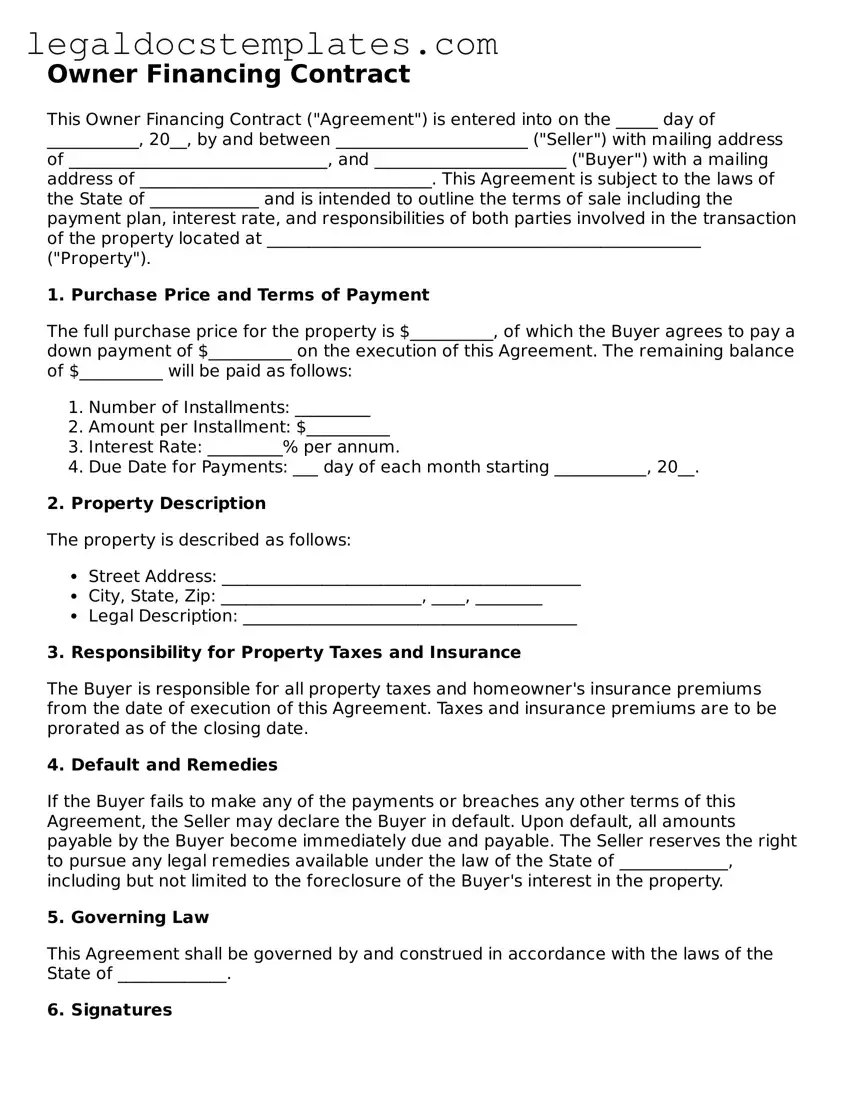Printable Owner Financing Contract Template
An Owner Financing Contract is a legally binding agreement where the seller of a property provides the financing to the buyer for the purchase, essentially acting as the lender. This form of financing can be beneficial for both parties, offering more flexible terms than those provided by traditional lenders. To smoothly navigate this process and ensure legal protection, it's advisable to thoroughly understand and properly fill out the Owner Financing Contract form. Click the button below to start filling out your form.
Access Owner Financing Contract Now

Printable Owner Financing Contract Template
Access Owner Financing Contract Now

Access Owner Financing Contract Now
or
⇩ PDF Form
Don’t spend hours on this form
Complete Owner Financing Contract online in minutes, fully digital.